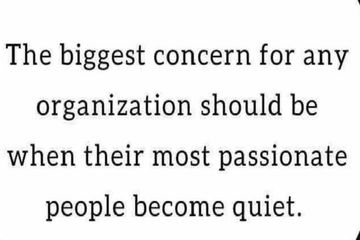The Theory Of Passion
Tim McClure, professional speaker, brand and leadership consultant, said, “The biggest concern for any organization should be when their most passionate people become quiet.”
During my career, I have heard this or other similar quotes many a times. Initially, it used to sound very impressive and my passion would run deep. Over the years, across organisations, I observed mostly that passionate people had a tendency to leave. The reasons are many--their passion ran out, they decided to find a new passion, nobody was as passionate as they claimed to be at the beginning.
Surprisingly, all this is/was always used by HR, trainers, coaches, but very infrequently by the business heads, who preferred “He/she is good, one of my best people. And I know I cannot hold on to most of them.”
Let’s explore the innate meaning of the word ‘passion’ and delve a little deeper into what or who a passionate person is. What are they passionate about? Culture, ethics, principles, behaviour, their work or organisations.
I have realised passionate people have their own fences and limitations about what they believe in. That thought boxes them in, because it keeps them from being a generalist, keeps them from becoming a people’s person, taking a bird’s eye view of work, organisations, category, industry.
The truly passionate are those who temper it with pragmatism and become leaders. They are the ones who carry people along, enthuse them, push them, create the passion for work and the organisation within them. In this volatile, uncertain, complex, ambiguous (VUCA) world, ‘passionate’ people are difficult to find and even more difficult to retain. And there are too many external factors at play.
Does this mean that passionate employees do not exist? They do; but to me, it is important that the crop of mediocre loyalists who hold 60-70 percent and are consistent and just a tad passionate but contribute more, are critical. Getting them just a little more involved and lending a catalyst to their passion would work wonders for the organisation.
Whenever somebody claims to be extremely “passionate” about work, ask If they would still have the same passion if there is no raise for a couple of years; that should give you a thorough understanding of the actual passion in their passionate DNA.
image not our own
















